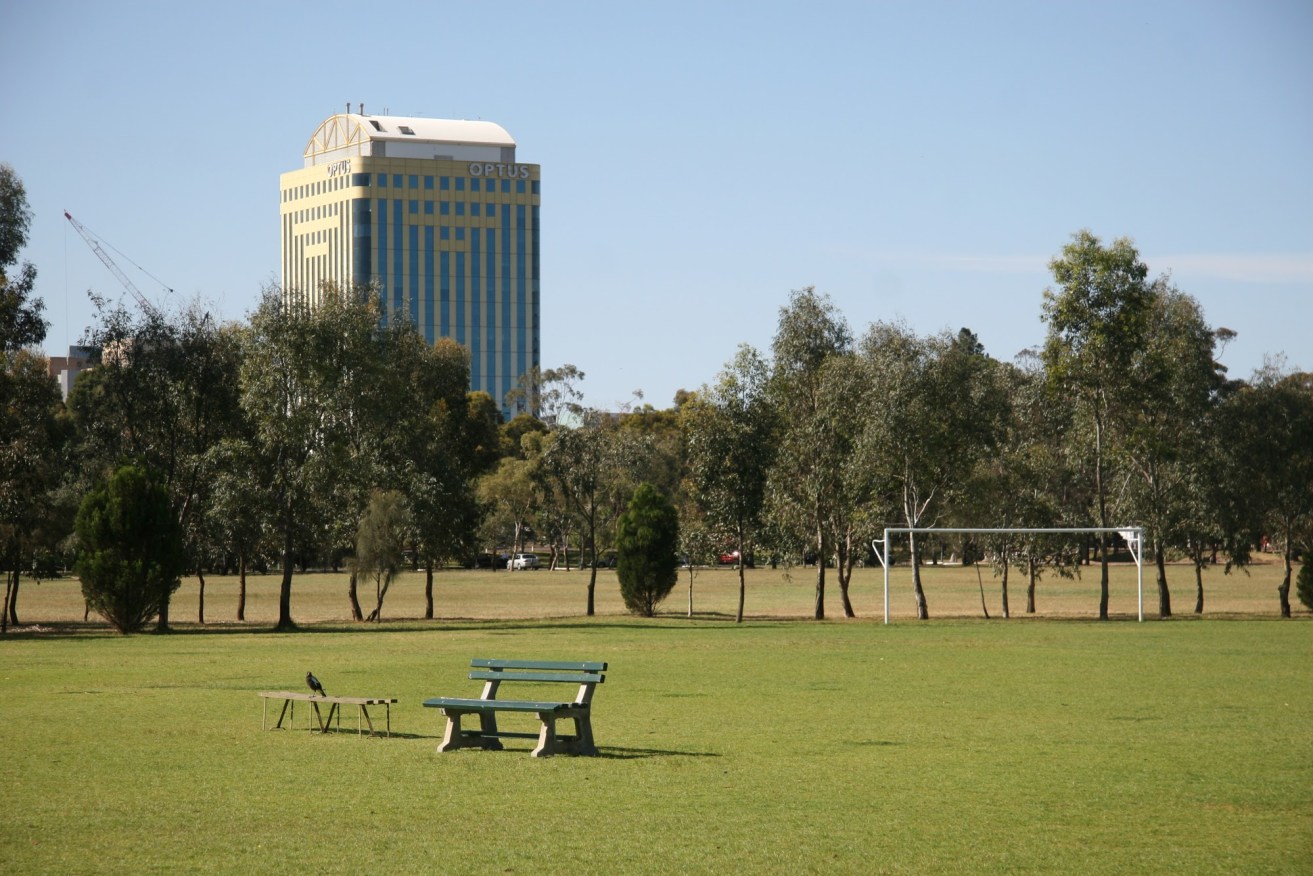Park lands hub to be set up for Aboriginal rough sleepers
UPDATED: The State Government will this week set up a temporary hub with showers, toilets, tents and offices in the southern park lands to accommodate and provide support to about 50 people from remote Aboriginal communities who are sleeping rough.

The state government hasn't revealed the precise location for a temporary hub for Aboriginal rough sleepers in the south park lands. Photo: Tony Lewis/InDaily
The hub is described by the Department for Human Services as a “state-first” response to supporting Aboriginal people who travel from remote communities to Adelaide for various reasons, including to seek medical services, attend court or visit family.
It will be built in the southern park lands later this week by a cross-agency “Safety and Wellbeing” government task force set up earlier this year to respond to growing concerns about the welfare of Aboriginal people who sleep rough in the city.
Called “Puti on Kaurna Yerta”, or Bush in the City, the hub will be patrolled 24/7 by security officers and staffed by representatives from SA Police, SA Health, the Department for Human Services, Aboriginal Affairs and Reconciliation, SA Housing Authority, Attorney-General’s Department and Adelaide City Council, as well as several non-government organisations.
People who visit the hub will have access to a range of services, including drug and alcohol, medical, mental health and legal support, which will be offered between 7am to 11pm from the privacy of mobile offices.
The hub, which will stay open for up to two months, will also include lighting, toilets, showers, sheltered areas and tents for those who choose to sleep there.
Interpreters from Iwiri Aboriginal Corporation, the Kaurna Nation Aboriginal Corporation and other Aboriginal organisations will be available on-site.
The Department for Human Services, whose chief executive Lois Boswell chairs the cross-agency taskforce responsible for the hub, hopes it will improve the safety and wellbeing of Aboriginal visitors, reduce anti-social behaviour in the park lands and help people return to country if they wish to do so.
Kaurna and Aṉangu Pitjantjatjara Yankunytjatjara leaders have worked with the taskforce to ensure the hub is culturally-inclusive.
Boswell told InDaily that Aboriginal homelessness was a “complex and long-running issue” for Adelaide, with input from Aboriginal leaders “critical” to ensuring the government understood the problems confronting visitors.
“We’ve been working closely with Aboriginal elders to design this state-first initiative which will see a culturally safe space for remote visitors to gather, access services and support in one central location,” she said.
“With these groups coming together we see Aboriginal people providing Aboriginal solutions, and by working together it will provide the best support and have the greatest opportunity for success.
“We have a common goal – addressing the wellbeing of vulnerable visitors to Adelaide and providing the best, culturally appropriate services.”
Boswell said during the COVID-19 pandemic earlier this year, the taskforce trialled a similar hub in Port Adelaide, which she said “successfully returned remote visitors home or to longer-term accommodation in Adelaide while connecting and providing them with appropriate supports”.
The Adelaide City Council last night unanimously voted in support of approving the establishment of the hub in the park lands.
Lord Mayor Sandy Verschoor said the hub was an example of how the council was working with the State Government to find culturally-appropriate ways to care for remote visitors to the city.
“It’s important the hub will be led and staffed by Aboriginal leaders who will help manage the program and provide access to services, activities and support from the central location,” she said.
“This innovative service builds on the success implemented at Port Adelaide during the lockdown earlier this year and I thank the State Government’s Safety and Wellbeing Taskforce for its diligent research and recommendations to try to find a solution on this matter.
“If this temporary program proves to be successful it will be a welcome outcome for everyone in our community.”
InDaily understands that about 50 Aboriginal people are currently sheltering in the park lands, but that number fluctuates.
Latest data from the Adelaide Zero Project, which monitors homelessness rates in the city, found that in August, just under 45 per cent of people who were homeless identified as Aboriginal or Torres Strait Islander.
In July, Aboriginal people accounted for over half of Adelaide’s homeless population for the first time since record-keeping began.
A Zero Project report said the spike was partly related to some Aboriginal people being unable return home during the COVID-19 pandemic due to lockouts designed to protect immune-vulnerable remote communities.
The Safety and Wellbeing taskforce was set up earlier this year following a call by the Adelaide Zero Project.
At the time, then Anglicare SA CEO and Zero Project co-chair Peter Sandeman said an “urgent joint high-level” taskforce was needed to reduce the risk of harm to Aboriginal people visiting Adelaide.
Boswell told an Adelaide City Council Reconciliation Committee meeting last month that the taskforce had found that lockdown shelters that permitted alcohol consumption and yarning circles led by Aboriginal translators were more successful than traditional homelessness responses.




